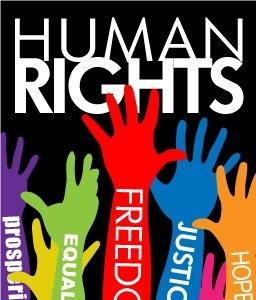IPEN commits to continue the fight for environmental, health and human justice

We, Co-Chairs of the global NGO network of IPEN, express our deep concern over human injustice happening around the world. Too often violent conflicts over natural resources target environmental activists for harm. These conflicts include land grabbing, illegal logging, devastating mining, overuse and contamination of water resources, international investments violating local laws, and many other activities with the potential to irreversibly change the life of people and communities.
Two murders happened in Honduras in March this year, taking the lives of two amazing individuals fighting for the rights of indigenous peoples to live in a protected and healthy environment.
On March 2nd, Berta Cáceres, one of the leading indigenous activists in Honduras, a coordinator of the organisation COPINH and a Goldman 2015 Prize Winner, was assassinated in her hometown of La Esperanza, Honduras. Berta won the Goldman Prize in 2015 for her successful fight against the world’s largest dam builder, and in defense of the rights of indigenous peoples of Honduras. Her powerful speech at the Goldman Prize ceremony inspires us all.
Two weeks later Nelson García, another member of COPINH, was murdered when he helped a group of poor families resist a land grab in the small town of Rio Lindo in Honduras. Both murders happened as a result of the violation of the right of free speech for activists defending the livelihoods of people.
Global Witness found “at least 116 environmental activists were murdered in 2014 - that's almost double the number of journalists killed in the same period. A shocking 40 % of victims were indigenous”.
Despite the fact that killings of environmental activists are increasing, several countries including China, Cuba, Egypt, Pakistan and Russia pushed forward amendments to the resolution on "Protection of human rights defenders working to promote economic, social and cultural rights," including proposals to remove any reference in the text to the term ‘human rights defenders’. The resolution was negotiated at the Human Rights Council in Geneva this week.
If adopted, the amendments would have:
- Removed any reference to the term ‘human rights defenders’;
- Denied the legitimacy of the work of human rights defenders;
- Weakened protection against, and accountability for, intimidation and reprisals against human rights defenders and others who cooperate with the United Nations;
- Failed to acknowledge the specific risks and violations faced by women, indigenous, and land and environment human rights defenders, their families and communities;
- Diluted and regress from consensus language and terminology established in past human rights defenders resolutions; and
- Justified limitations on human rights that are impermissible under international human rights law.
Today, 24 March, the Resolution on human rights defenders was formally adopted by 33 countries as originally tabled by Norway (ie:without the proposed amendments). Burundi, China, Cuba, Nigeria, Russia, and Venezuela voted against it.
This was a result of the pressure from more than 150 NGOs who signed the letter to support the adoption of the resolution on the protection of human rights defenders working to promote economic, social and cultural rights as tabled. IPEN salutes governments who resisted efforts to undermine and weaken this resolution.
IPEN’s international network of NGOs stand in solidarity with environmental leaders and movements around the world, and we commit to continue our fight for environmental, health and human justice.
Dr. Olga Speranskaya & Manny Calonzo
IPEN Co-Chairs
